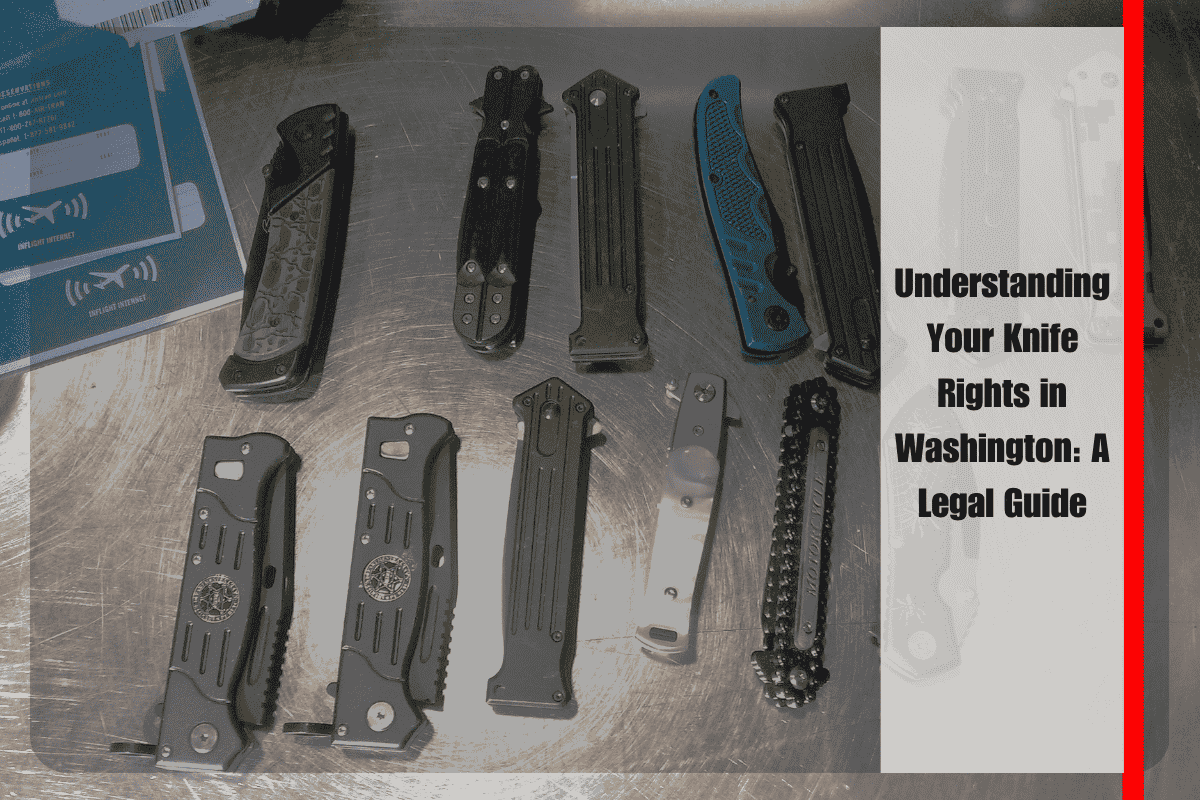If you’re living in Washington or planning to visit, it’s important to understand your rights when it comes to knives. Laws surrounding knives can vary greatly depending on the state, and Washington is no exception. Whether you are a knife enthusiast, a collector, or simply someone who carries a knife for practical reasons, knowing the legal limits can help you avoid unnecessary trouble. In this guide, we’ll break down the key aspects of Washington’s knife laws, including what is legal, what is prohibited, and what you need to know to stay on the right side of the law.
Types of Knives and Their Legal Status
In Washington, knives come in different shapes and sizes, and each type is subject to specific laws. Understanding the classification of different knives can help you determine if you are carrying one that is legally allowed. Generally, knives are categorized into two main groups: fixed-blade knives and folding knives. Both types are legal to own and carry in Washington, but there are certain conditions that may apply depending on the situation.
Fixed-blade knives, such as hunting knives or utility knives, are generally legal to possess and carry. These knives are often used for outdoor activities like camping or fishing. However, it’s important to note that carrying a fixed-blade knife openly in public can sometimes raise legal concerns depending on local ordinances and the context in which the knife is carried.
Folding knives, which include pocket knives, are typically legal to carry without restrictions. These knives can be easily folded and concealed, which makes them less likely to be considered a weapon in public. That said, it’s still important to ensure that the blade length doesn’t exceed certain limits, as longer blades may be subject to stricter regulations.
Knife Concealment and Open Carry Laws
In Washington, open carry of knives is generally allowed, but there are some restrictions based on the type of knife and its intended use. The law allows you to carry knives openly, especially for outdoor activities, but some restrictions apply when carrying knives within city limits or in specific locations. For example, carrying a large knife while in a public space or near certain government buildings may be illegal.
Concealed carry laws in Washington are a bit more complex. While it is legal to carry a concealed folding knife or a smaller fixed-blade knife, there are exceptions. Concealing a knife with the intent to use it as a weapon may lead to criminal charges, and any knife deemed to be a “dangerous weapon” is illegal to carry concealed. This includes knives such as switchblades or ballistic knives, which are illegal under both state and federal law.
The key here is the intent behind carrying the knife. If you’re carrying a knife for legitimate purposes like work, self-defense, or recreation, you’re likely within the bounds of the law. However, if you are concealing a knife with the intent to use it in a threatening manner, this could result in serious legal consequences.
Knife Carrying and Specific Locations
When it comes to where you can carry knives in Washington, there are some restrictions to be aware of. Public places like schools, government buildings, and certain private properties have their own rules regarding knife possession. For instance, knives are generally prohibited in schools, and it is a criminal offense to carry a knife on school grounds. The law also prohibits carrying knives in areas where they could be seen as a threat, such as during protests or in highly crowded environments.
Additionally, while it is legal to own and carry knives in your home, if you’re planning to take your knife into a public space, it’s important to be mindful of where you are and what you’re doing. Local municipalities may have specific laws or ordinances that limit knife carrying in certain public areas, so it’s always wise to check the local rules.
Prohibited Knives and Federal Restrictions
Certain knives are explicitly prohibited under Washington state law. For example, switchblades, which are automatic-opening knives, are illegal to own or carry in most situations. Similarly, ballistic knives, which can shoot their blades, are banned in Washington. These types of knives are considered dangerous weapons and are heavily regulated under both state and federal law.
Another federal restriction that affects Washington is the law surrounding the possession and transportation of knives across state lines. If you’re traveling with a knife, you must be aware of the laws in both your current location and any states you may pass through, as different states have different regulations regarding knife possession.
Understanding your knife rights in Washington is essential to ensure you’re abiding by the law and protecting yourself from legal issues. While many knives are legal to own and carry, there are key considerations, including the type of knife, where you carry it, and your intent. Always make sure you are aware of any local ordinances or specific restrictions on knife possession. When in doubt, it’s a good idea to consult legal advice to avoid potential trouble, especially if you’re unsure about the classification of a particular knife. Being informed about your rights and responsibilities will help you stay on the right side of the law while enjoying your knives for practical use or collection.
Sources
[1] https://fastdemocracy.com/bill-search/wa/2025-2026/bills/WAB00023022/
[2] https://www.billtrack50.com/billdetail/1806105
[3] https://tkellknives.com/knife-laws-in-washington-state-legal-carry-and-restrictions/
[4] https://www.shieldon.net/washington-knife-law-the-complete-guide/
[5] https://www.tektoknives.com/blogs/news/washington-state-knife-laws












